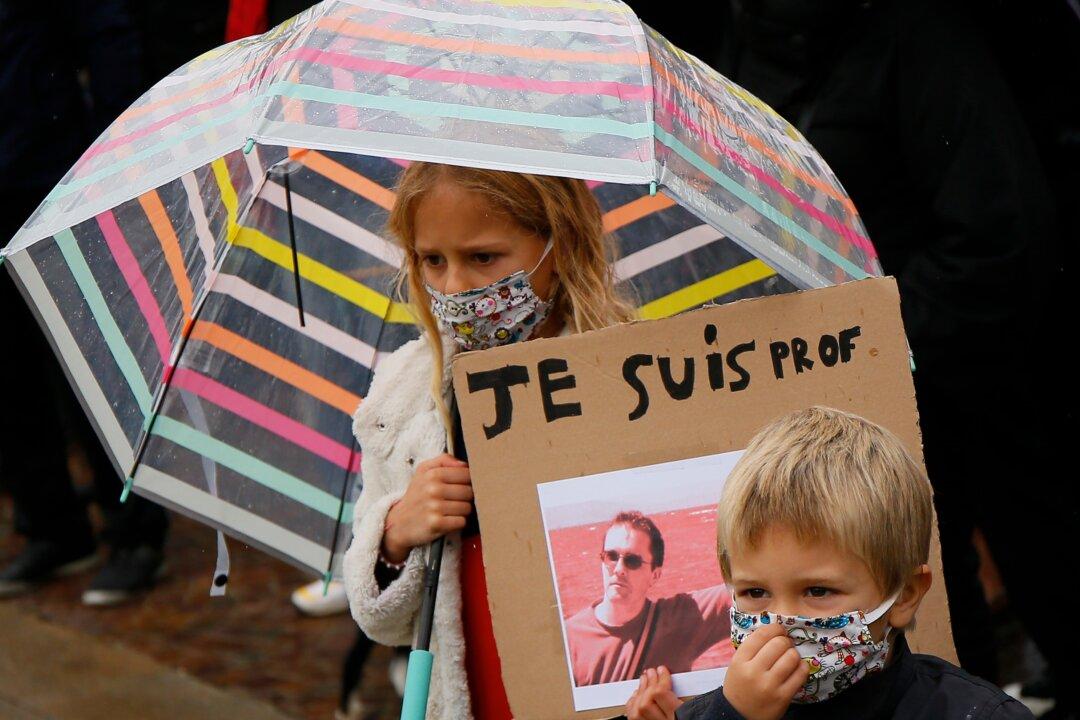Four 10-year-old schoolchildren have been questioned by French police after they openly voiced support for the beheading of a schoolteacher who showed caricatures of Muslim Prophet Muhammad in class and said they would kill their own teacher if he did the same.
The children expressed support for the Oct. 16 terrorist murder of French history teacher Samuel Paty on Nov. 2, when French schools held a nationwide minute of silence to honor the slain teacher, Interior Ministry spokeswoman Camille Chaize said in a video statement on Nov. 6.





